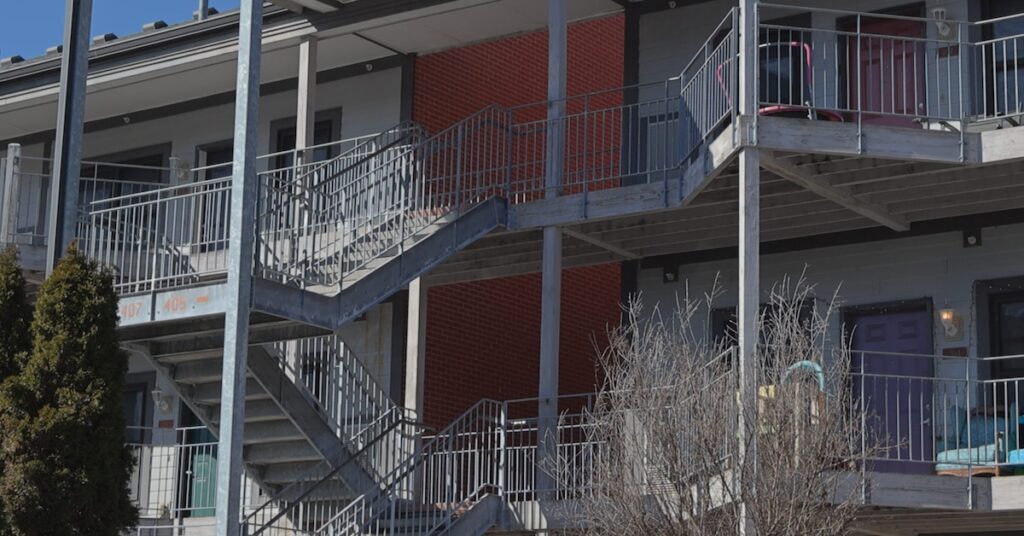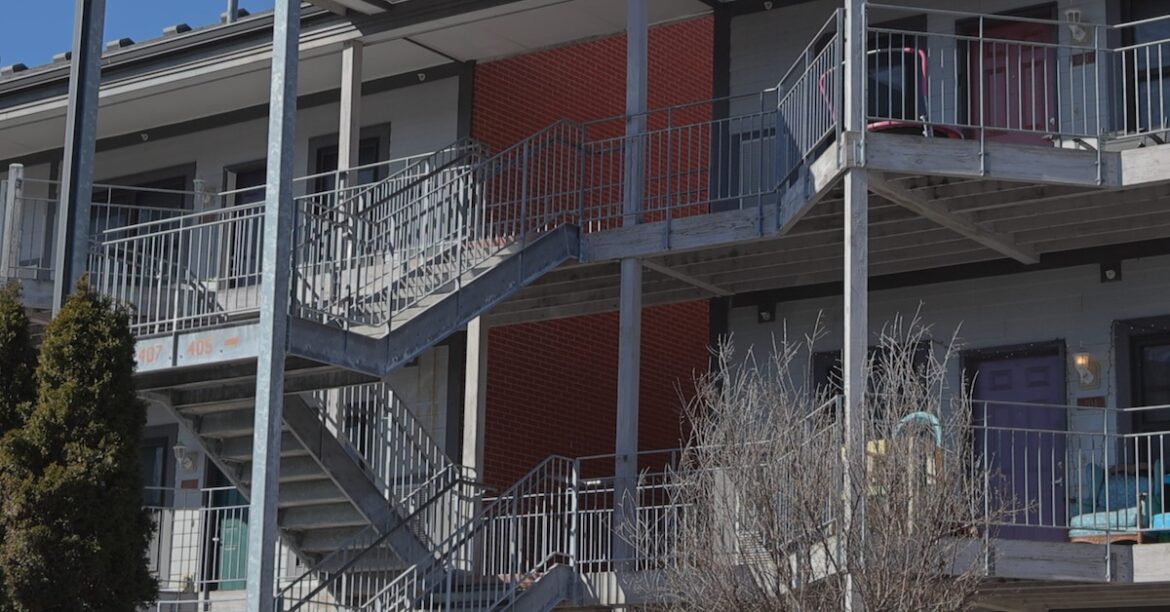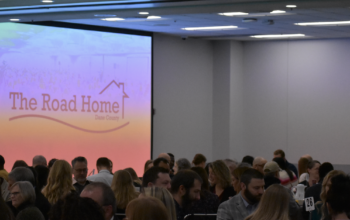This story, a modified version of a story that ran earlier in The Capital Times, is part of a two-year (2024-26) series prioritizing solutions to housing insecurity through collaborative storytelling. For more information about the series, please see the project overview. For questions or comments, please contact Sue Robinson at robinson4@wisc.edu.
Located in the heart of the Village Shopping Center on Madison’s South Side, the UW Odyssey Project’s walls have seen generations of adults graduate with college degrees in the past 22 years. But through the decades of transforming low-income students’ lives, one struggle has risen above all as a barrier to their educational paths.
“We can talk about Socrates, Emily Dickinson and Martin Luther King, but what happens when you then go home and your home is your car?” Odyssey Project Executive Director Emily Auerbach asked.
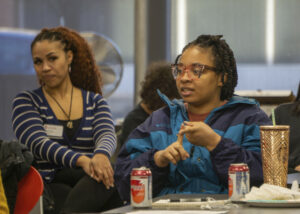
Housing costs in Madison have skyrocketed since the pandemic, with rent prices having jumped 30.4% from 2020 to 2023. Black and Latina single mothers, who make up the majority of UW Odyssey’s clients, especially struggle to find affordable housing and meet their basic needs.
“I can’t even provide hot water to my kids,” Cinderria Harwell, a 2022 Odyssey graduate, told Madison Commons, citing months of ignored maintenance requests at her apartment in Fitchburg Springs. “Why am I going to school?”
After watching countless students abandon their education for housing reasons, Odyssey Success Coach Brian Benford has begun looking for solutions. The former city alderman has been working closely with community stakeholders to implement a new program he believes will almost guarantee student success: the Family Scholar House model.
“In all the years I’ve been looking at housing models, I’ve never seen anything like it,” Benford said.
Founded in 1995 in Louisville, Family Scholar House is a post-secondary education program that provides residential housing and wraparound services addressing the basic needs of parents and their children. FSH President and CEO Cathe Dykstra told Madison Commons that the program is unique because of how it “combines affordable housing and accountability” to ensure student success.
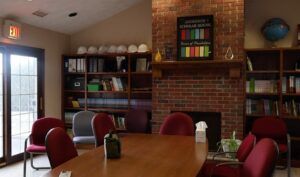
“We have actual data that shows how people come off of government assistance and graduate to self-sufficiency in our program,” Dykstra said. “We use our vouchers one time on one family and then they never need it again.”
Students who go through the FSH model in Louisville typically spend between three and six months working with pre-residential advocates to address barriers, including food insecurity, mental health care and eviction threats. When a housing spot opens and they are deemed ready, the program provides scholars reduced-rent apartments on the condition that they attend school full-time.

“If people want to own their own home or they want their kids to have college paid for, that all starts with a safety net,” said Bernadette “Bernie” Stone, assistant program director of family advocacy at the Louisville FSH. “That’s what we are. We make sure everyone has the resources they need outside of academics.”
Though the title of “Family Scholar House” is exclusive to its five residential campuses across Louisville, there are FSH affiliates serving people across the United States.
Amanda “Mandy” Lowery is a residential student at Heartland Scholar House in Anderson, Ind., working toward her masters degree in social work. The single mother told Madison Commons the program has “transformed” life for her and her daughter, who used to live together in an attic while Lowery worked two “dead-end” jobs to make ends meet.
“[Scholar House] supports us all the way, even after graduation,” Lowery said. “I had no family, no friends, before. And now, I mean, I can just go on with the list of people that I can reach out to, no matter what the circumstances.”
The FSH model is a two-generation program that specifically serves single mothers or fathers and their children, which is also the main clientele base UW Odyssey serves. Briana Price, executive director of the Heartland program, said the program increases its single mothers’ chance of college graduation from 1.7% to around 88.6%.
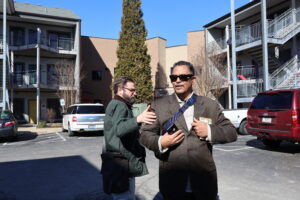
“[The mom] has graduated herself out of poverty, and she’s brought her child with her, who now has an 80% chance of also being in college,” Price said.
In late February, along with Benford, UW Odyssey director Kevin Mullen and Jeffrey Russell, dean of continuing studies at UW, toured the scholar houses in Anderson and Louisville February 28 and 29 to figure out the logistics involved in getting a Madison housing project off the ground.
Benford said that without the project-based housing vouchers that the Louisville and Anderson programs use to pay their residents’ rent, the main challenge in running a Madison program is securing funding.
In Louisville, the 36-unit campus cost more than $9 million, according to a December 2023 Louisville Business First article about the project. Furthermore, as tariffs imposed by President Donald Trump take effect, new construction costs are also expected to soar as much as 20% over the next year, according to CNBC.
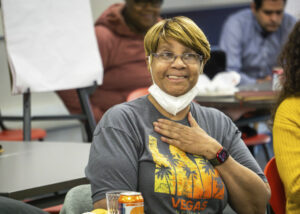
“If our state legislature would support us like in Indiana, that would be huge,” Benford said. “Otherwise, if a donor with deep pockets comes forward, the pieces would fall in place.”
In the meantime, Benford and Mullen are looking to form a steering committee of alders, county supervisors and interested stakeholders in hopes of bringing local government support and creating a nonprofit group for the project. They also presented the idea April 3 to Odyssey community members, who shared stories of what such a housing project could potentially do for their lives.
“If something like that would exist here in Madison, I would be rallying around it,” Mary Wells, a 2007 Odyssey graduate in her sixties, told the crowd. “I just know too many young moms out here that go through different things — the same things we went through decades earlier.”
Madison Commons paid for UW–Madison journalism students Sreejita Patra and Kiesen Williams to travel and report on Family Scholar Houses in Kentucky and Indiana in February 2025. A documentary made during their trip can be found here.
